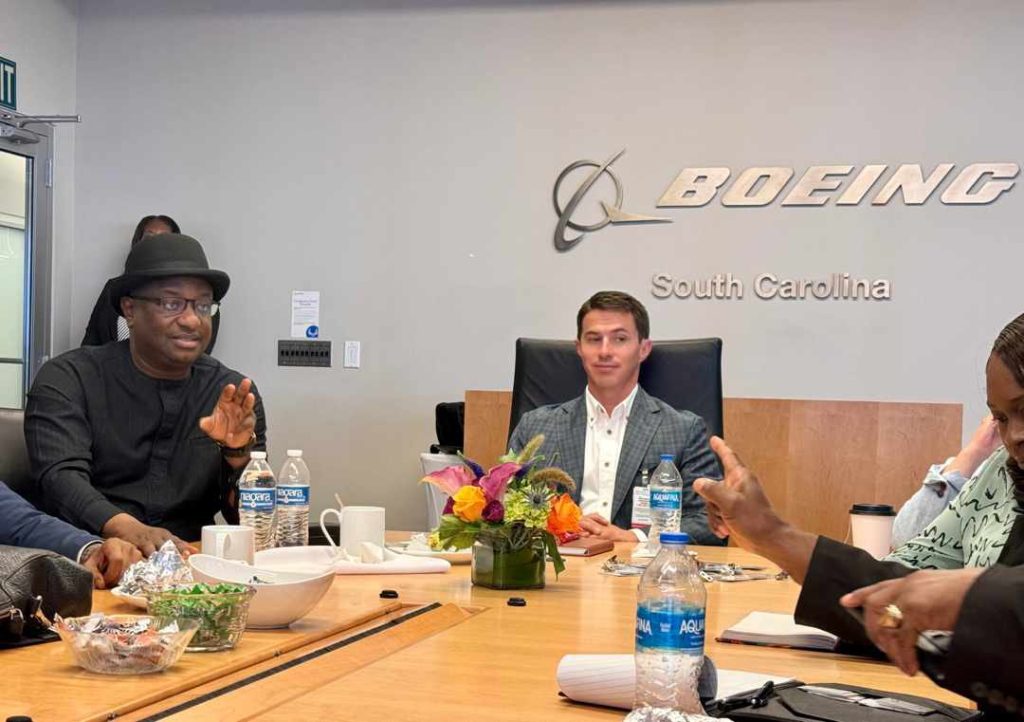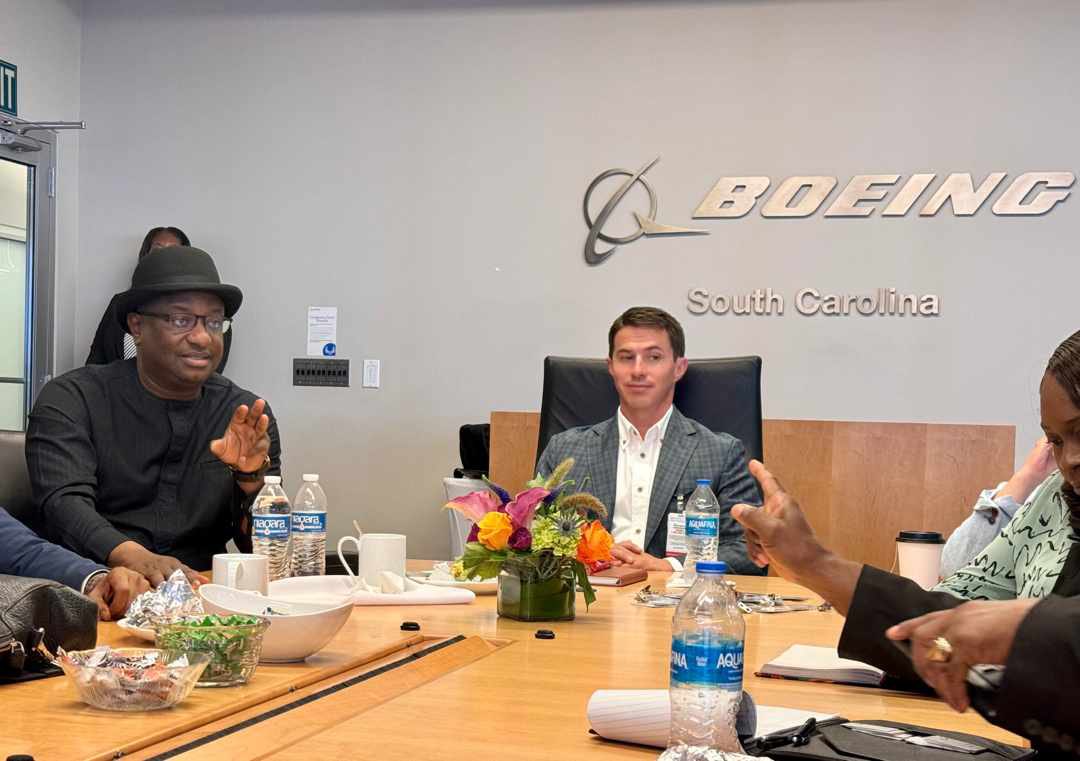
Addressing Nigeria’s Aviation Challenges: Time to Move Beyond Investor Diplomacy
The recent visit by the Minister of Aviation and Aerospace Technology, Mr. Festus Keyamo, alongside top airline operators to Boeing for possible collaborations in Charleston, South Carolina, USA reflects Nigeria’s ongoing efforts to boost its domestic aviation sector. This follows a similar trip to France to engage Airbus. While these diplomatic efforts may seem commendable, there is a need to evaluate whether this strategy of Investor Diplomacy is genuinely effective or merely a recurring cycle of unproductive engagements. Nigeria’s aviation industry has long been plagued by systemic challenges that go beyond partnerships with major aircraft manufacturers.
In my upcoming book Skybound Harmony: Bridging the Gap between Passengers and Airlines, releasing on October 28th, 2024, I stress that the airline industry cannot be left to the owners alone. To build a successful aviation sector, all key stakeholders—airlines, employees, and passengers—must work together. It’s not just about buying new aircraft; we need a shared commitment to maintaining high standards, preventing executive recklessness, and creating a smooth travel experience for everyone.
This aligns with my opinion of Nigeria’s aviation challenges. While efforts to attract international investors like Boeing and Airbus are good, they miss the bigger picture. A strong aviation industry requires fixing internal issues like poor infrastructure, an unstable economy, and weak regulations. True progress comes from within—through collaboration and improving the business environment. Only then can Nigeria build an industry that attracts investment and delivers lasting growth, benefiting all stakeholders in the long run.

Get your e-copy on Amazon https://a.co/d/0CbOOIq
The Flawed Approach of Investor Diplomacy
Investors are primarily driven by profit, stability, and favorable conditions, not by sentiments or diplomatic appeals. Simply put, you cannot charm investors into partnerships through repeated trips and negotiations without addressing the core issues plaguing your business environment. The Nigerian government has repeatedly sought external support without focusing enough on the critical factors that make a nation an attractive investment destination.
Countries like the United Arab Emirates, Saudi Arabia, and other Middle East nations continue to attract massive investments despite their restrictive religious and cultural practices, and even amid security challenges. The reason is clear: they have invested in creating stable, business-friendly environments supported by solid infrastructure, sound economic policies, and strong currencies. They focus on building a compelling investment ecosystem rather than wooing investors through endless trips.
A Call for Strategic Reforms
If the Nigerian government is serious about transforming the aviation industry and attracting investment, it must go beyond high-profile meetings and diplomatic tours. Here are three critical recommendations to shift the narrative and encourage genuine investment:
- Improve Business Infrastructure and Regulatory Environment: Investors need stable, reliable infrastructure to thrive. The current state of Nigeria’s airports, roads, and electricity supply, coupled with bureaucratic red tape and inconsistent regulatory practices, severely undermines investment prospects. The government must prioritize modernizing airport facilities, streamline regulatory processes, and enhance support services to create an enabling environment for businesses to flourish.
- Strengthen Economic and Monetary Policies: A weak currency and inconsistent economic policies continue to discourage investors. The government must take decisive steps to stabilize the naira, manage inflation, and implement policies that foster economic growth. A stable economy with a resilient currency will not only attract investors but also ensure the profitability of their ventures in Nigeria.
- Develop Conflict Resolution Mechanisms and Ensure Political Stability: A favorable legal and conflict resolution framework is crucial for investor confidence. Investors need assurance that disputes will be handled fairly and swiftly. The government should focus on strengthening its judicial systems, introducing alternative dispute resolution mechanisms, and ensuring political stability to boost investor confidence in the country.
Conclusion
While diplomatic engagements with Boeing and Airbus are well-intentioned, they cannot substitute the fundamental reforms needed to attract meaningful investment. The Nigerian government should focus on addressing the root causes of investor hesitation by improving infrastructure, stabilizing the economy, and ensuring a business-friendly environment. These efforts, rather than endless trips abroad, will position Nigeria as a credible and attractive destination for investment in the aviation industry and beyond.






Solid work done here, I will recommend every airline operator to get a copy.